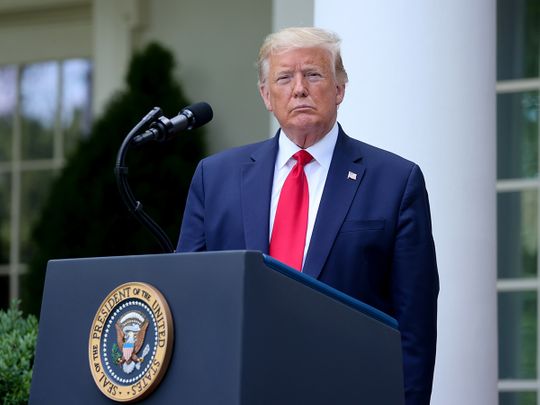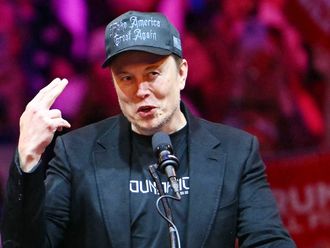
San Francisco: Twitter on Tuesday for the first time prompted readers to check the facts in tweets sent by US President Donald Trump, warning his claims about mail-in ballots were false and had been debunked by fact checkers.
In a tweet responding to the company’s move, Trump accused the company of interfering in the 2020 presidential election.
“Twitter is completely stifling FREE SPEECH, and I, as President, will not allow it to happen!” he said.
The blue exclamation mark notification prompted readers to “get the facts about mail-in ballots” and directed them to a page with news articles and information about the claims aggregated by Twitter staffers.
Trump, who has more than 80 million followers on Twitter, had claimed in tweets earlier in the day that mail-in ballots would be “substantially fraudulent” and result in a “rigged election.” He also singled out the governor of California over the issue, although the state is not the only one to use mail-in ballots.
“Trump makes unsubstantiated claim that mail-in ballots will lead to voter fraud,” said a headline at the top of the page, followed by a “what you need to know” section correcting three false or misleading claims made in the tweets.
Twitter confirmed this was the first time it had applied a fact-checking label to a tweet by the president, in an extension of its new “misleading information” policy introduced this month to combat misinformation about the coronavirus.
The company said at the time it would later extend the policy on disputed or misleading information about COVID-19 to other topics.
“We always knew that Silicon Valley would pull out all the stops to obstruct and interfere with President Trump getting his message through to voters,” said Trump campaign manager Brad Parscale.
Twitter’s fact-checking notification came hours after the social network declined to take action on tweets Trump sent about the 2001 death of a former congressional staff member, after her widower asked the company to remove them for furthering false claims.
A Twitter spokesman told Reuters that the difference was that the later Trump tweets were related to election integrity.











